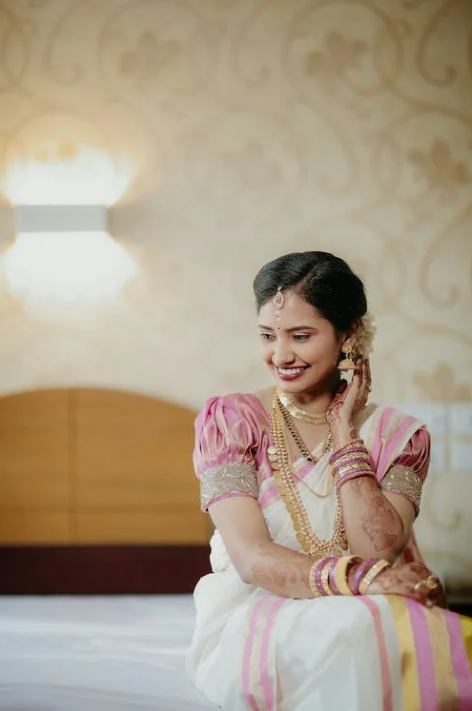Choose another country or store view to see content specific to your location and shop online.
29 Traditional Indian Bridal Wear from Different States
29 Traditional Indian Bridal Wear from Different States |Feb 29, 2024
- Share

India is a land of diversity and it is vividly reflected in the stunning array of bridal attire found across its various states. From the beautifully adorned silks in South India to the vibrant Bandhani textiles of the West, the country’s range of traditional wedding outfits encapsulates the heritage of its diverse people. This blog will take a journey across India, exploring the splendour of 29 bridal ensembles hailing from unique regional bridal trousseaus. Get ready to be immersed in the diverse Indian bridal fashion and bring in the ethnic pride and women’s expression of joy during their special day. You may also like to read: 1. Half Saree Function: Festivities of Femininity 2. 40 Types of Sarees: Celebrating the Vibrant Mosaic of Indian Textiles 3. 33 Saree Material Types: Understanding The Versatility of Saree Fabrics 4. 33 Types of Silk Sarees Popular in India - Masterpieces in Silk 5. 28 Lehenga Dupatta Draping Styles - Flaunt Your Dupatta Like a Pro From the vibrant silks of South India to the intricate needlework of the North, India boasts a rich tapestry of bridal attire. Each region's wedding dress represents its unique heritage, resulting in a breathtaking mix of tradition and beauty. In Kerala, brides shimmer in a cascade of silk. The bridal outfits in Kerala include the Kerala white saree, Pure Kanchipuram silk saree, and pattu saree, which exude elegance and traditional charm. With their beautiful patterns, fabrics, and colours, these Kerala bridal outfits make brides look even more beautiful and bring a bit of culture to their big day. Brides in Tamil Nadu wear the iconic Kanchipuram sarees, which are the true embodiment of elegance and tradition in South India. These sarees in fiery red to regal blue canvas are designed with intricate zari work and can beautifully adorn a bride with grace on her special day. The traditional bridal wear in Karnataka, like the Kasuti sari and Mysore Silk Saree, transforms women into radiant goddesses. While the Kasuti sari reflects the state’s rich heritage, the Mysore silk saree is known for its luxurious texture and vibrant colours. Whether you are wearing a Kasuti or a Mysore saree, it can enhance the bride's beauty and make her ready to embark on her happily ever after. The bridal wear in Andhra Pradesh is known for its pure silk saree in white with red borders. The saree in this colour combination symbolises purity and is often paired with traditional jewellery. Along with it, the Kanchipuram saree's rich colours and intricate designs enhance the bride's beauty. In Goa, brides love to wear elegant white gowns, which symbolise purity and grace. The minimalism of white gowns enhances the true beauty of the bride. The bride can pair it with beautiful embellishments and accessories to make her look radiant and enchanting. Maharashtrian bride attire often features the exquisite Paithani silk saree in vibrant yellow and green hues. Paired with a classical hair bun adorned with pearls and flowers, the brides echo true elegance on her special day. The bridal attire in Telangana is characterised by stunning pure Kanchipuram saree and Pattu wedding sarees in bright and vibrant colours. These sarees beautifully depict the luxury and tradition of the bride on her wedding day. The intricate designs and rich colours of Kanchipuram sarees add extra elegance like no other saree. Read more about: 1. South Indian Wedding Traditions: Understanding the Bride and Groom's Attire for Each Day 2. 85 Saree Blouse Designs From Runway to Everyday In Odisha, brides love to wear a traditional yellow saree with red borders known as Boula Patta. This attire symbolises prosperity and marital bliss. The bright colours of the saree, along with the intricate patterns, make this saree a true beauty. The bridal attire in Chhattisgarh is exquisite lehengas with bright colours like red, green or orange. These lehengas are beautifully embellished with intricate embroidery, mirror work and sequins to create a stunning and traditional look for the bride. Ghagra choli, the loose-fitted version of Lehengas, is the bridal wear in Madhya Pradesh. These beautifully adorned bridal outfits reflect the rich heritage of Madhya Pradesh. A ghagra is a flared skirt that is fitted or paired with a blouse and a dupatta. Every ensemble of Ghagra choli is beautifully embellished with embroidery, beadwork, and mirrorwork to create a stunning bridal look. Panetar is a traditional bridal dress in Gujarat. According to tradition, it is a gift from the maternal uncle to wear on the big day. The brides of Gujarat love to dress up in rich and beautifully embellished Panetar. This outfit symbolises purity and prosperity, making it a cherished choice for Gujarat. The wedding dresses of Rajasthan for brides are lehengas. A lehenga comprises a choli, dupatta, and ghagra. Most lehengas for brides are made from silk, georgette, crepe and cotton. Every ensemble of lehenga will be beautifully adorned with beautiful mirror work, zari and gota patti, which reflect the colourful and opulent cultural heritage of Rajasthan. Tusser silk sarees are the most popular bridal wear in Jharkhand. The sarees will be adorned with intricate designs and embroidery. Apart from tusser silk sarees, Panchi and Parhan are popular wedding attire, where panchi serves as the upper garment and parhan is the lower garment. To complement the look of the bride, gold, silver and beaded ornaments are used to make the wedding day extra special. Sarees are the most popular and traditional dress in Uttar Pradesh. Whatever the occasion, sarees are the favourite choice of women. But as bridal wear, lehenga cholis are also being considered. It can give your bride the best look with its vibrant colours and exquisite craftsmanship. The brides of West Bengal usually choose a red and gold Banarasi saree for their wedding day. This exquisite attire symbolises marital bliss and is adorned with beautiful zari work, making it the most popular choice among brides in Bengal. The red colour of these wedding sarees signifies fertility and prosperity, while the gold colour is known for wealth and luxury. In Bihar, the bride will be beautifully dressed up in traditional silk sarees, including the lovely banarasi sarees and the enchanting Madubani silks. These sarees showcase the rich cultural heritage of Bihar and how this gorgeous saree will take her to her happily ever after. Bright-coloured sarees and lehengas are the well-liked bridal dresses in Haryana. The sarees in various splashes of colour bring joy to every occasion, reflecting the festive spirit of the celebration and the cultural vibrancy of the state. For a Sikh bride, a red lehenga or salwar kameez are the popular choices. The sarees can be worn too but for Sikhs, sarees are not traditional Punjabi attire. It's auspicious for a bride's new married life to wear a red salwar kameez, the colour that symbolises prosperity and auspiciousness. Uttarakhand’s traditional bridal wear is a red ghagra, which is beautifully adorned with gold embroidery, complemented by a large nath (nose ring), maang teeka, bulaq, guloband and a silver kamar bandh. All these accessories will add a touch of elegance as well as cultural significance to the bride's ensemble. The dresses for women in Himachal Pradesh are both stunning and alluring. But the bridal dress is more bright, elegant and fashionable, with a flowing skirt paired with a colourful shawl. To add beauty to the full attire, complement it with heavy jewellery, which represents the state’s vibrant and diverse heritage. For Kashmiri brides, heavy lehengas in vibrant colours, including gold, green and red, are considered auspicious. It is believed that these vibrant colours bring prosperity and happiness to the life of the bride. The traditional dress for women in Sikkim on the wedding day is known as Bakhu. These dresses are popular among both men and women and they suit the climate of the Himalayas well. These long, loose dresses are deeply rooted in Sikkimese culture and are an integral part of the national identity. In Assam, brides get dressed up in a traditional Mehkela Chadar, a two-piece ensemble that can be draped elegantly like a saree. This attire, with its intricate designs and vibrant colours, reflects the rich cultural heritage of Assam. Moreover, this Mehkela Chadar, the bridal wear of Assamese, symbolises grace, beauty and tradition. The traditional bridal attire of Meghalaya showcases the Naga culture. The focal point of this bridal attire is a vividly woven shawl adorned with symbolic motifs. This beautiful garment not only enhances the grace of the bride but also represents her rich tribal heritage. In Arunachal Pradesh, the traditional bridal wear is a sleeveless chemise paired with an embroidered jacket with long sleeves. This is the customary choice for brides in Arunachal Pradesh and reflects the cultural essence and traditional attire for brides. The most iconic bridal attire in Tripura is the Rinai, a colourful knee-length garment wrapped around the waist. It features a Risa, an elaborately brocaded upper portion that ethically covers the chest in florally embroidered patterns. This distinctive ethnic ensemble is beautifully woven, displaying Tripura's rich textile heritage. Mizo weddings commonly feature western-style white gowns for the bride. However, some brides like to dress up in the traditional puanchei, a colourful signature Mizo costume that can be paired with a white blouse. Puanchei is a spectacular handwoven dress reserved for joyous occasions like weddings and festivals. The traditional bridal wear of Manipur is the Potloi or Pollai, a cylindrical skirt of thick fabric and bamboo worn by Meitei Hindu brides. Similar to the skirts of Rasa Leela dancers, the Potloi is adorned with satin cloth, mirrors and glitter. This ensemble encapsulates Manipuri culture and heritage through its intricate craftsmanship and dazzling embellishments. The vibrant traditional Naga bridal ensemble centres around an intricately woven shawl called a mechala. Adorned with bold tribal patterns and symbols, the colourful mechala identifies the bride's ancestry while adding to her elegance. This eye-catching handcrafted shawl encapsulates the bride's heritage, transforming her bridal outfit into a cultural work of art. The traditional variety of bridal wear pinpoints the rich cultural heritage and diversity of India. Each outfit not only reflects the aesthetic preferences of that particular region but also its history, values and exquisite craftsmanship. After going through this blog, we will be reminded of the timeless allure of Indian wedding traditions and the importance of preserving them for future generations. Traditional Indian Bridal Wear from Different Regions
1. Kerala
2. Tamil Nadu
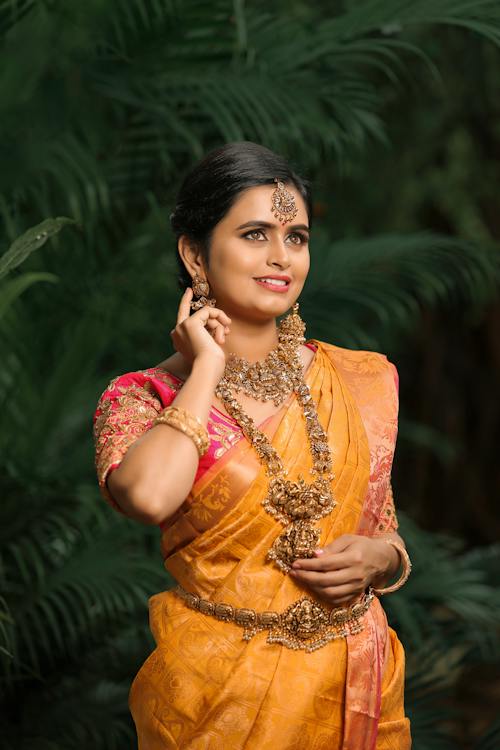
3. Karnataka
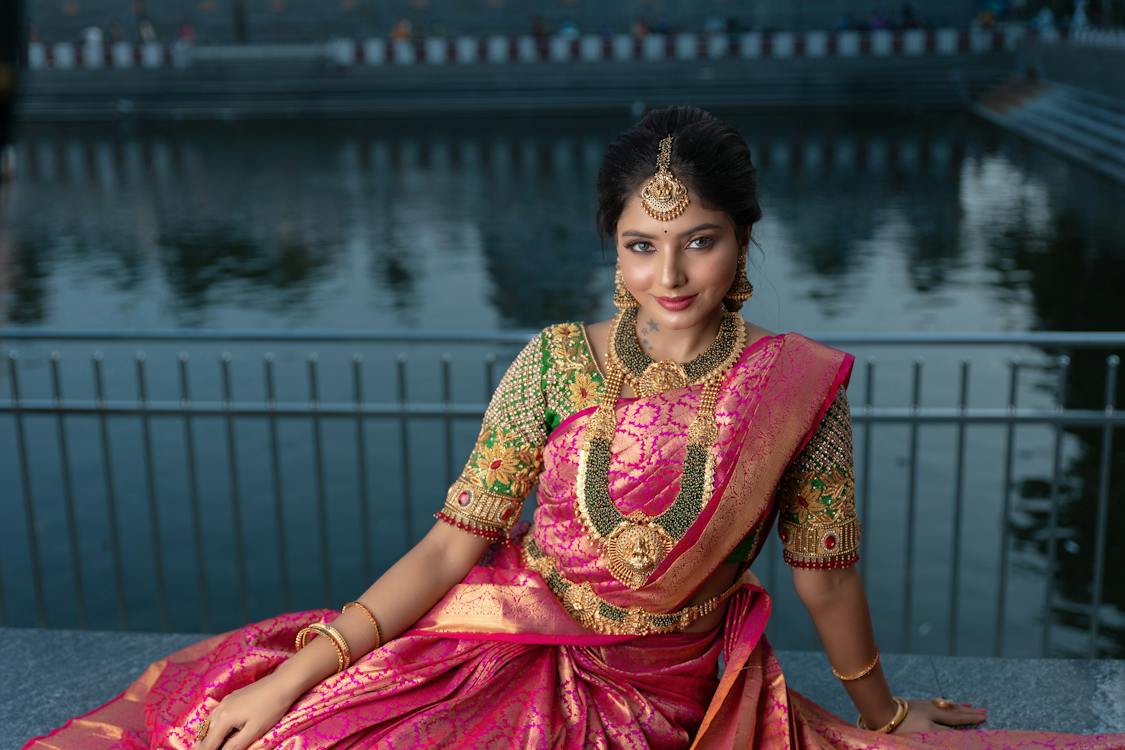
4. Andhra Pradesh
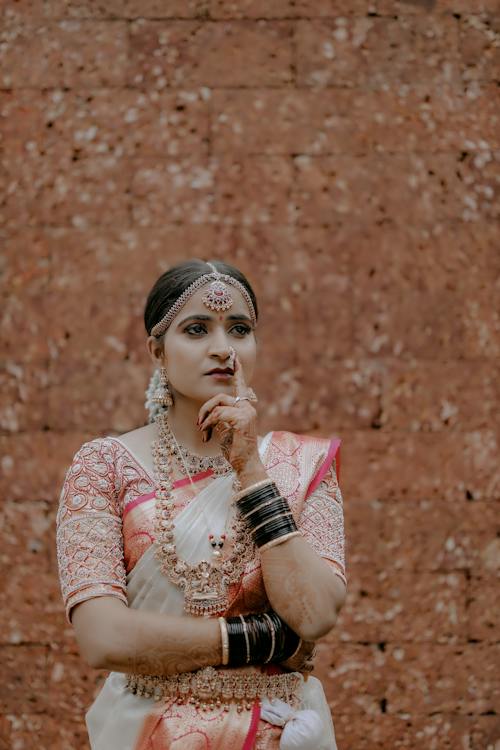
5. Goa
6. Maharashtra
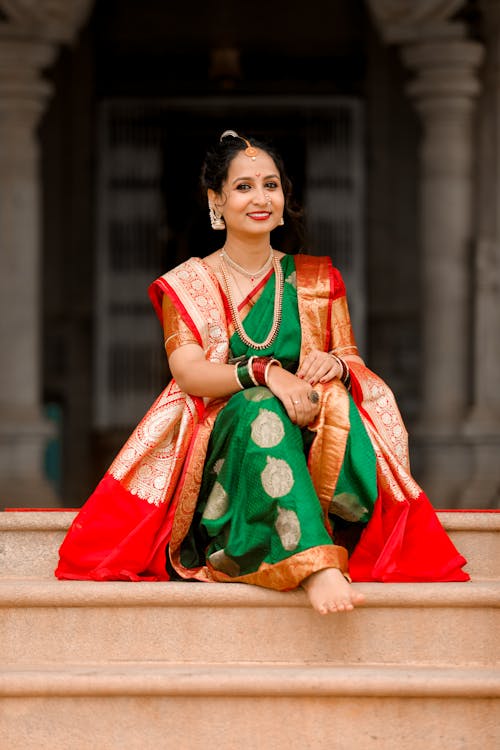
7. Telangana

8. Odisha
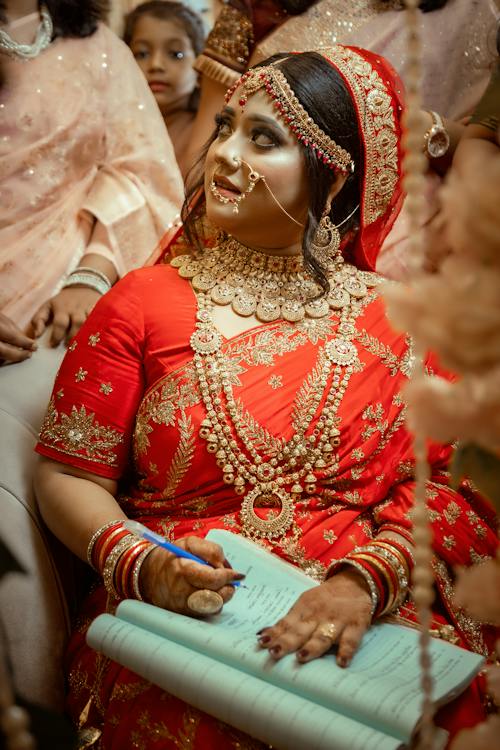
9. Chhattisgarh
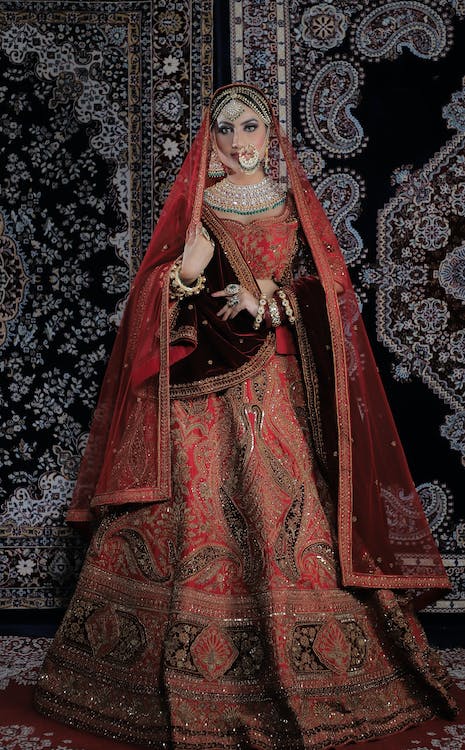
10. Madhya Pradesh
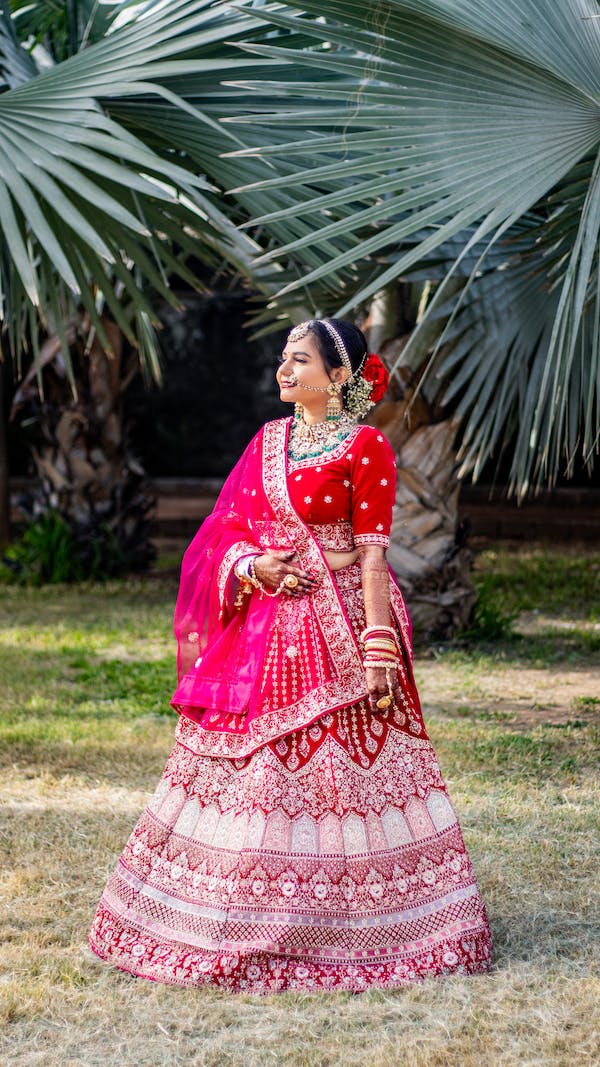
11. Gujarat
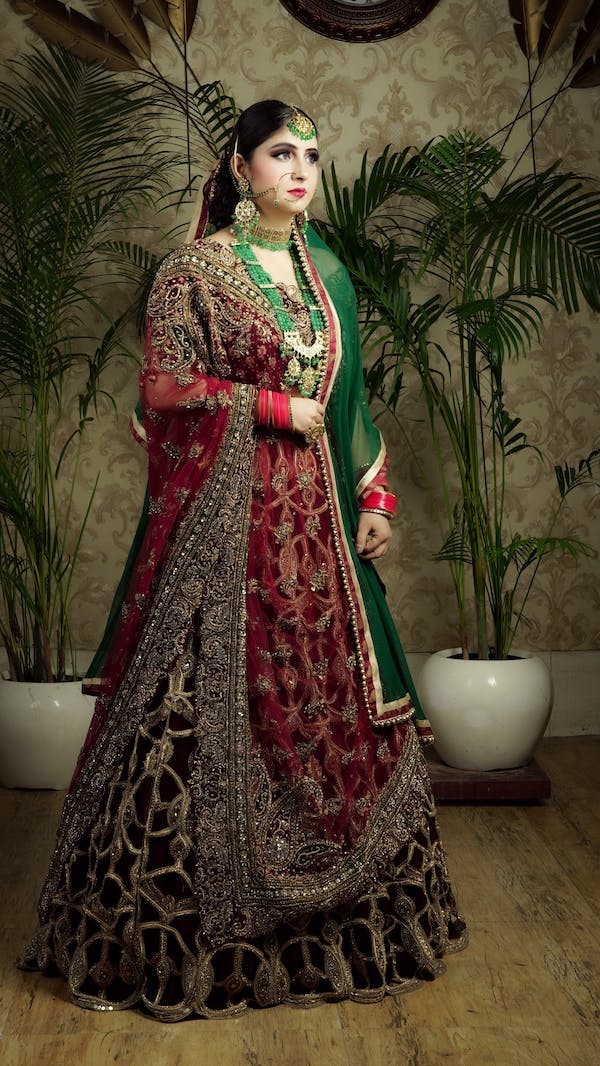
12. Rajasthan
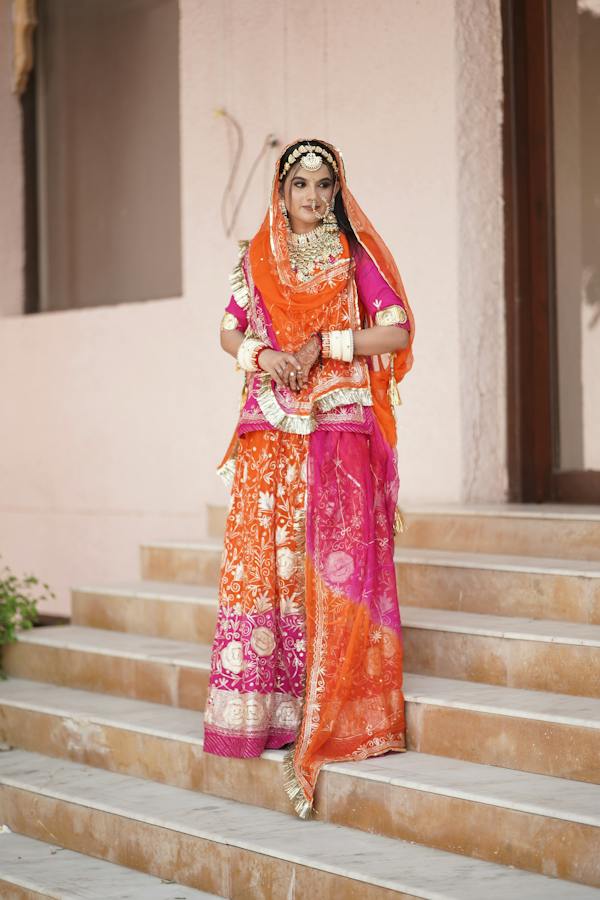
13. Jharkhand
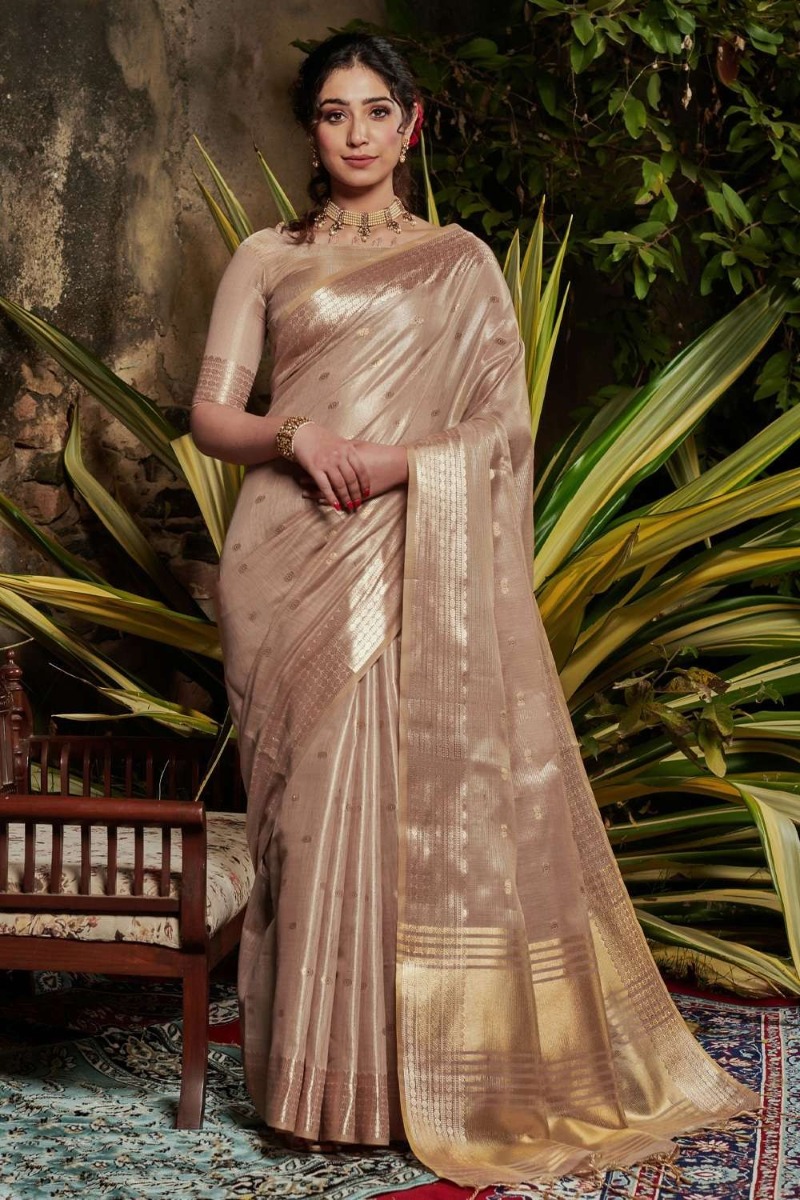
14. Uttar Pradesh
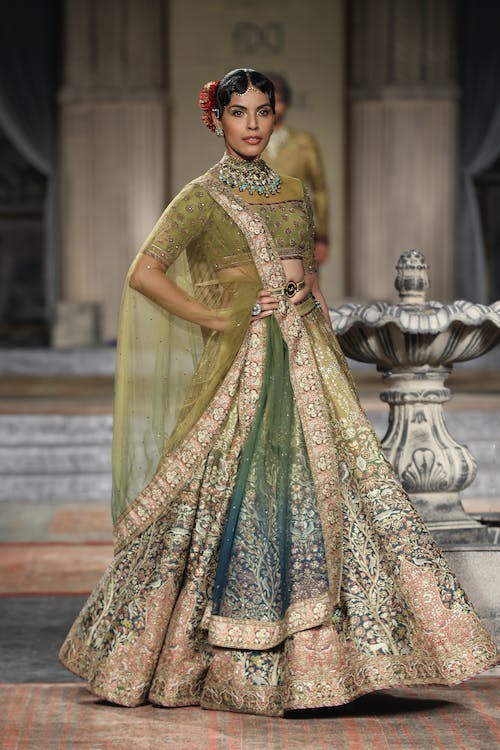
15. West Bengal
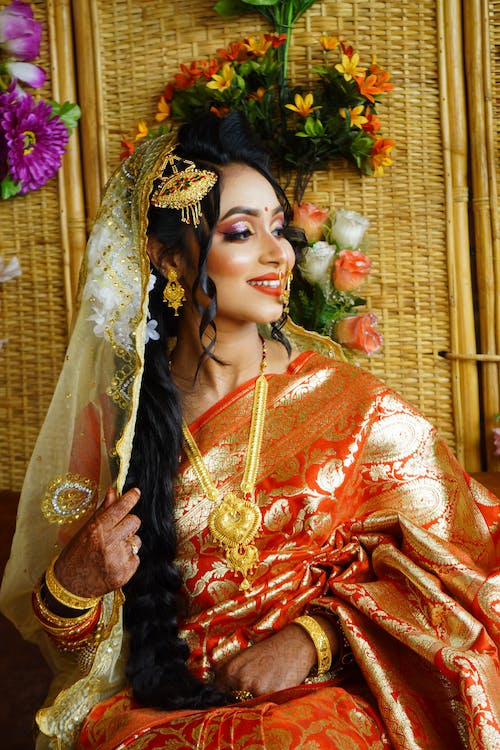
16. Bihar
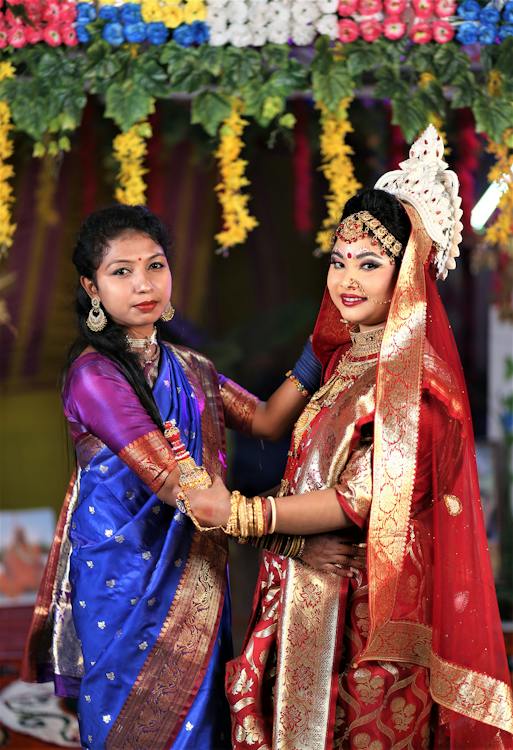
17. Haryana
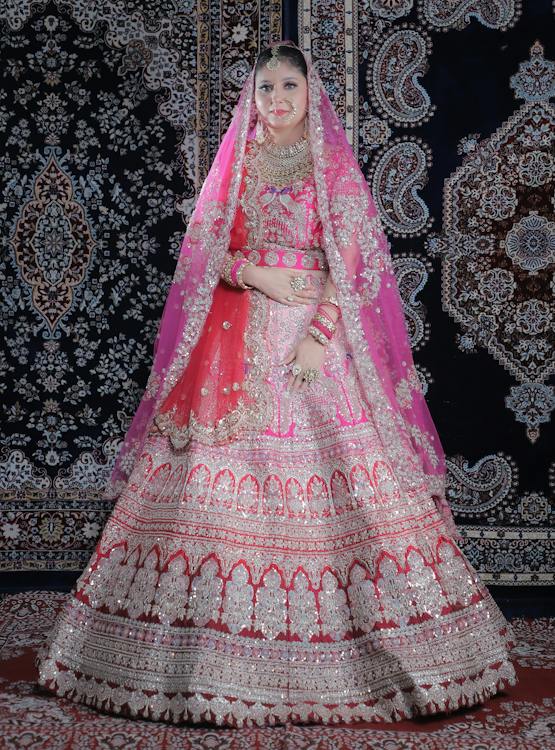
18. Punjab
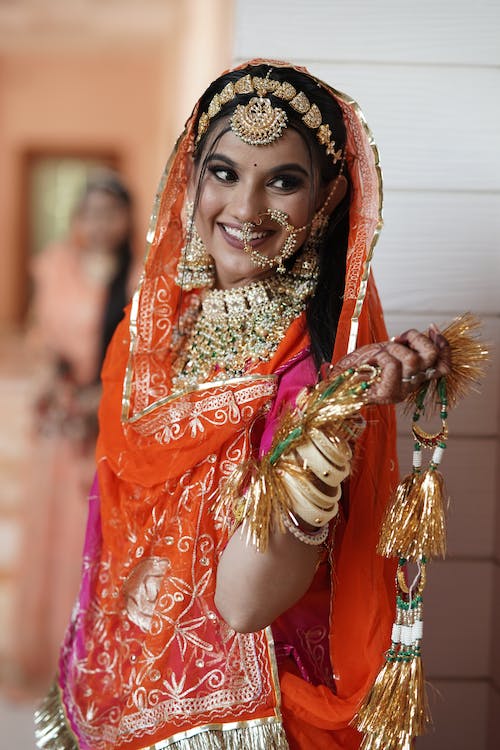
19. Uttarakhand
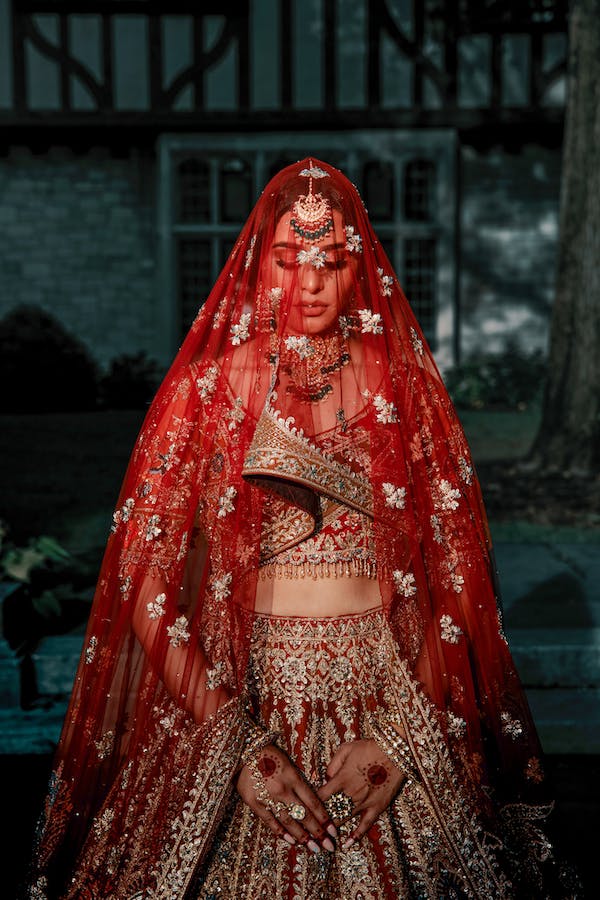
20. Himachal Pradesh
21. Jammu & Kashmir
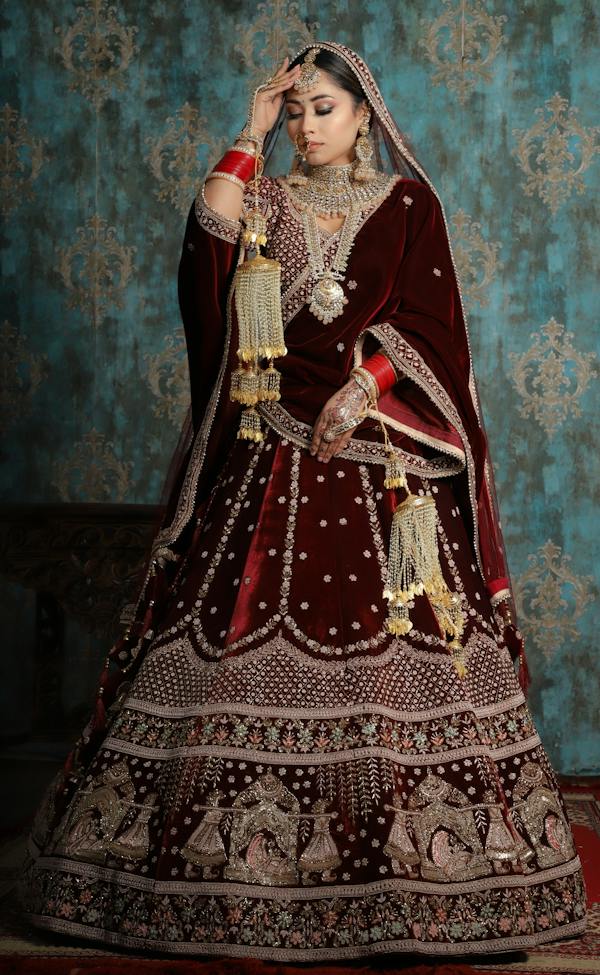
22. Sikkim
23. Assam
24. Meghalaya
25. Arunachal Pradesh
26. Tripura
27. Mizoram
28. Manipur
29. Nagaland
Celebrate the Distinct Beauty of Diverse Bridal Wear in India
- Free Shipping
- Assured Quality
- World wide Shipping
- 100% Secure Payment
- Best Price Promise
